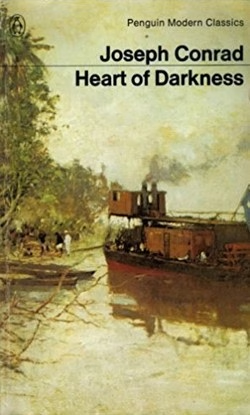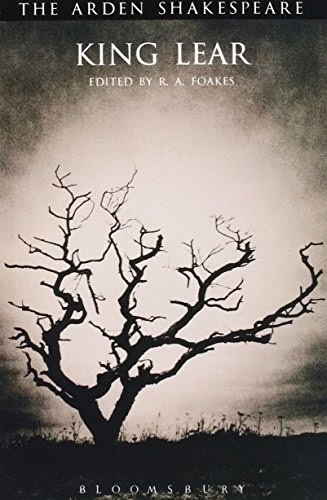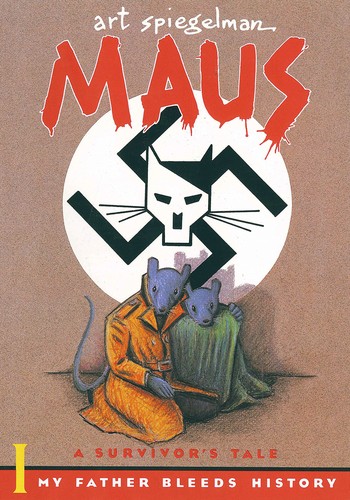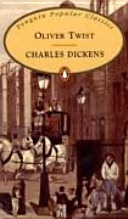Plot Summary
The Nellie on the Thames
The story begins on a cruising yawl, the Nellie, anchored in the Thames Estuary at dusk. On board are five men: the Director of Companies, the Lawyer, the Accountant, an unnamed narrator, and Charles Marlow. As they wait for the tide to turn, Marlow, a seasoned sailor, remarks that the very river they are on, the heart of the British Empire, was once “one of the dark places of the earth” when the Romans first arrived. This reflection serves as a prelude to a story about his own journey into a different kind of darkness. He announces that he once took a job as a freshwater sailor, a captain of a river steamboat in Africa for a Belgian trading company, an experience that profoundly changed him. The rest of the novella is Marlow’s telling of this story.
Appointment in the Sepulchral City
As a young man, Marlow had a passion for maps, especially the blank spaces representing unexplored territories. One such space, a large area in the center of Africa bisected by a mighty river resembling an “immense snake uncoiled,” captivated him. Now an adult, he learns of a Continental trading company operating on that river and becomes determined to secure a captaincy. Through the influence of a well-connected aunt, he quickly gets an appointment, replacing a captain named Fresleven who was killed in a dispute with natives over two hens.
Marlow travels to the Company’s headquarters in a European city he describes as a “whited sepulchre.” The atmosphere is sterile and ominous. In the waiting room, two women knit black wool, reminding Marlow of the Fates spinning the destiny of men. He meets the head of the Company, a powerful but unremarkable man, and signs his contract. Before leaving, he undergoes a perfunctory medical examination by a doctor who has a peculiar scientific interest in measuring the crania of men going to Africa and observing the “changes inside” them. His aunt sees him off, speaking with naive idealism about “weaning those ignorant millions from their horrid ways,” making Marlow feel like an impostor before his journey has even begun.
The Journey to Africa and the Outer Station
Marlow travels to Africa aboard a French steamer. The journey down the coast is a monotonous and surreal experience. He witnesses a French man-of-war senselessly shelling an invisible “enemies’ camp” in the jungle, a first glimpse into the absurd and destructive nature of the European presence.
He finally disembarks at the Company’s Outer Station, the first stop on his journey inland. The station is a scene of utter chaos, decay, and shocking brutality. He sees:
* Wasted machinery: A wrecked railway truck and a boiler lie abandoned in the grass.
* Objectless blasting: A cliff is being blown up for no apparent reason.
* A chain gang: Six black men, chained together with iron collars, march past him, their bodies emaciated and their eyes lifeless.
* The “grove of death”: Under a cluster of trees, Marlow discovers a shaded area where sick and overworked native laborers have crawled away to die. They are “black shadows of disease and starvation,” victims of the Company’s “philanthropic” enterprise.
Amid this “great demoralization,” Marlow is astounded to meet the Company’s chief accountant, a man of impeccable appearance with a starched collar and clean cuffs who maintains his civilized veneer. It is from this man that Marlow first hears the name of Mr. Kurtz, described as a “first-class agent” and a “very remarkable person” who runs the Inner Station deep in the ivory country and sends in more ivory than all the other agents combined.
The Central Station: Intrigue and Delay
After a grueling 200-mile, fifteen-day trek overland, Marlow arrives at the Central Station. He is met with the news that the steamboat he was meant to captain has sunk in the river under the command of a volunteer skipper. Marlow suspects the sinking was deliberate, a way to delay him from reaching Kurtz.
The Central Station is run by a “flabby devil of a rapacious and pitiless folly.” The agents, whom Marlow calls “pilgrims,” wander about aimlessly with long staves, driven only by a greedy desire to get a post in the ivory country. The station is dominated by the Manager, a hollow, unremarkable man who inspires only uneasiness. His power seems to derive solely from his robust health and his ability to outlast everyone else. The Manager speaks of Kurtz with a strange mix of admiration and thinly veiled hostility, expressing great “anxiety” over his health.
Marlow spends months at the station, working to salvage and repair his steamboat. This work, this focus on a practical task, becomes his salvation, keeping him sane amidst the corrupt and conspiratorial atmosphere. He befriends a boilermaker, a fellow worker who shares his passion for the task.
One night, Marlow overhears the Manager and his uncle, the leader of a group of buccaneers called the Eldorado Exploring Expedition, plotting against Kurtz. They resent Kurtz’s success, his influence in Europe, and his moralizing ideals, which they see as a threat to their positions. They hope the harsh climate will “do away with this difficulty” for them. From their conversation, Marlow gets his first real glimpse of Kurtz: a lone white man who, after traveling 300 miles downriver, suddenly turned back into the depths of the wilderness.
The Voyage into the Heart of Darkness
With the steamboat finally repaired, Marlow begins the two-month journey upriver to the Inner Station, accompanied by the Manager, a few pilgrims, and a crew of about twenty natives whom he refers to as “cannibals.” The journey is described as a trip “back to the earliest beginnings of the world.” The jungle is a massive, silent, and impenetrable force, an “implacable force brooding over an inscrutable intention.” Marlow feels cut off from civilization, like a wanderer on a prehistoric earth. The reality of the journey—navigating treacherous shoals, watching for snags, and managing the boiler—keeps him grounded and prevents him from succumbing to the hypnotic, maddening power of the wilderness.
The “cannibals” on board display a surprising and inexplicable restraint. Despite being desperately hungry (their supply of rotten hippo meat was thrown overboard), they never attack the five white men. Marlow marvels at this, seeing it as a profound human secret that defies logic.
About fifty miles from their destination, they find a deserted hut with a neatly stacked pile of firewood and a note: “Wood for you. Hurry up. Approach cautiously.” Inside, Marlow finds a tattered book on seamanship, its margins filled with notes he thinks are in cipher. The book’s simple, honest practicality feels like a comforting piece of reality in the overwhelming wilderness.
The Attack and Arrival
The next morning, a thick, blinding fog descends, halting their progress. An unearthly, sorrowful cry erupts from the riverbanks, followed by a cacophony of shrieks. When the fog lifts, the steamboat proceeds up a narrow channel and is suddenly ambushed. A shower of small arrows flies from the dense bush. The pilgrims open fire wildly with their Winchesters, filling the air with smoke. In the chaos, Marlow’s skilled African helmsman is killed by a thrown spear, falling at Marlow’s feet. Believing the attackers’ goal was to prevent them from reaching Kurtz, Marlow pulls the steam whistle, which lets out a series of deafening shrieks that scare the natives away.
Devastated, Marlow assumes Kurtz must also be dead. He realizes that his entire journey has been driven by the desire to meet this man, not for what he did, but for what he represented: a voice. He mourned the loss of the chance to hear him speak. To his surprise, however, they round a bend and see Kurtz’s station.
The Inner Station and Kurtz’s Disciple
At the station, Marlow is greeted by a bizarre young Russian man dressed in clothes made of colorful patches, resembling a harlequin. This man is an ardent disciple of Kurtz, whom he reveres as a genius who has “enlarged my mind.” He explains that the natives attacked the steamer because they don’t want Kurtz to leave.
The Russian reveals the depths of Kurtz’s corruption. Kurtz has become a brutal demigod to the local tribes, who adore him and follow him on his savage raids for ivory. He has been indulging in “unspeakable rites” and his hut is surrounded by poles topped with the shrunken heads of “rebels.” Through his binoculars, Marlow sees the heads for himself. He realizes that the wilderness has “found him out early,” whispered things to him about himself, and taken a “terrible vengeance.” Kurtz, “hollow at the core,” lacked the inner strength to resist.
The Encounter and the Fall
Kurtz is finally brought out from the hut on a stretcher. He is a skeletal, emaciated figure, little more than “an animated image of death carved out of old ivory.” As he is carried to the steamer, a magnificent and fierce native woman, adorned with barbaric ornaments, appears on the shore and stares before retreating into the forest.
On board, Kurtz’s powerful voice remains. He speaks of “my Intended, my ivory, my station, my river.” The Manager condemns Kurtz’s “method” as “unsound,” showing his concern is not for Kurtz’s morality but for the damage done to the Company’s profits. That night, Marlow discovers Kurtz has left his cabin and is crawling on all fours back towards the native campfires. Marlow intercepts him at the edge of the forest and confronts the “moral shock” of a man who has kicked himself “loose of the earth.” He appeals not to any high ideal but to Kurtz’s own vanity and reputation, convincing the dying man to return.
Kurtz’s Final Judgment
The steamboat begins its journey back downriver. Kurtz’s health deteriorates rapidly. He entrusts Marlow with a packet of personal papers, including a photograph of his fiancée (his “Intended”). One evening, as Marlow enters his cabin, Kurtz, staring at some final, inner vision, utters his last words in a whisper: “The horror! The horror!” A short while later, the manager’s boy announces, “Mistah Kurtz—he dead.”
Marlow himself falls gravely ill, wrestling with death. He survives but is left psychologically scarred. He believes Kurtz was a remarkable man because, on the threshold of death, he had “something to say” and “pronounced a judgment.” His final cry was an affirmation, a “moral victory” over the abominable life he had lived.
The Sepulchral City and the Lie
Back in Brussels, Marlow finds it impossible to relate to the petty, self-assured people who are utterly ignorant of the darkness he has witnessed. He is visited by several people seeking to claim Kurtz’s legacy—a Company official, a supposed cousin, and a journalist—each painting a different, incomplete picture of the man.
Finally, Marlow is left with only the letters and portrait belonging to Kurtz’s Intended. He visits her more than a year after Kurtz’s death. She lives in a world of pure, idealized grief, remembering Kurtz as a beacon of goodness and genius. Her faith in him is so absolute and luminous that Marlow cannot bring himself to shatter it with the “too dark” truth of Kurtz’s life and death. When she begs to hear his last words, Marlow lies. He tells her, “The last word he pronounced was—your name.”
The narrative returns to the Nellie. Marlow falls silent. The narrator looks out at the Thames, which now seems to lead not to the heart of an empire, but “into the heart of an immense darkness.”
Characters
Charles Marlow
The protagonist and narrator of the main story. Marlow is an experienced sailor whose journey into the Congo is also a profound psychological and philosophical quest. He is cynical about the colonial enterprise from the start, but he is also deeply curious about the enigmatic Mr. Kurtz. Unlike the other Europeans, Marlow is self-aware and introspective, constantly questioning the nature of civilization, savagery, and his own morality. He is obsessed with work and efficiency, which he uses as an anchor to reality to keep from going mad in the oppressive jungle. His ultimate loyalty to Kurtz is complex; he despises Kurtz’s actions but respects him for having faced the truth of his own soul, a truth Marlow himself only glimpsed.
Mr. Kurtz
The central figure of the narrative, though he only appears in the final act. Kurtz is a man of immense talent—a gifted writer, artist, and orator—who arrives in the Congo with grand, benevolent ideals about civilizing the natives. However, the absolute power and solitude of the wilderness strip away his civilized veneer, revealing a monstrous, primal greed and ego. He becomes a tyrannical demigod to the local tribes, using his charisma and advanced weaponry to conduct brutal raids for ivory and preside over “unspeakable rites.” He represents the terrifying potential for darkness that lies within the human heart when all external social restraints are removed. His final, famous cry, “The horror! The horror!”, serves as a profound and final judgment on his own actions and the darkness he has discovered both in the world and within himself.
The Manager
The head of the Company’s Central Station. The Manager is the embodiment of the hollow, mediocre, and corrupt nature of colonialism. He possesses no great talent, charisma, or intelligence; his only skills are inspiring “uneasiness” in others and surviving the harsh climate that fells better men. He is driven by petty jealousy and a desire for power, viewing Kurtz not as a moral abomination but as a rival who threatens his position. He represents a different kind of evil from Kurtz’s—not a passionate descent into savagery, but a cold, soulless, and bureaucratic rapacity.
The Russian Trader (The Harlequin)
A young, adventurous Russian sailor whom Marlow meets at the Inner Station. Dressed in colorful patched clothes, he is a figure of naive and boyish enthusiasm. He is a devoted disciple of Kurtz, captivated by his intellect and eloquence, and remains loyal despite Kurtz threatening to kill him over a small stash of ivory. The Russian is amoral and unthinking in his devotion; he sees Kurtz’s greatness but is not truly troubled by his horrific methods. He represents a kind of pure, uncritical adventurism, seduced by the glamour of the abyss without understanding its true nature.
Kurtz’s Intended
Kurtz’s fiancée, who lives in Brussels. She exists in a world of idealized illusions, completely unaware of the man Kurtz became in Africa. Her faith in his goodness, nobility, and benevolent genius is absolute. For Marlow, she comes to symbolize the naivety of the “civilized” world, a beautiful but fragile ignorance that he feels compelled to protect. His decision to lie to her about Kurtz’s last words is a pivotal moral choice, aimed at preserving her illusion rather than confronting her with the devastating truth.
The African Woman
A fierce, magnificent, and richly adorned native woman who appears on the riverbank as Kurtz is taken away. She is assumed to be Kurtz’s mistress and a figure of great influence among his followers. She is a silent, powerful, and mysterious character who embodies the untamed, dangerous, and alluring spirit of the wilderness. Her tragic, statuesque presence serves as a stark contrast to the pale, naive world of Kurtz’s Intended. She represents the “dark” reality that has claimed Kurtz.
Core Themes
The Hypocrisy of Imperialism
The novel is a powerful indictment of the hypocrisy of European colonialism. The stated mission of the Company is a philanthropic one: to bring civilization, progress, and enlightenment to Africa. However, Marlow quickly discovers this is a hollow pretense for brutal exploitation and the rapacious pursuit of wealth, symbolized by ivory. The operation is characterized by inefficiency, pointless destruction, and extreme cruelty toward the native population, who are enslaved and worked to death. The “civilizing mission” is revealed to be nothing more than “robbery with violence, aggravated murder on a great scale.”
The Darkness Within and the Fragility of Civilization
The “heart of darkness” is not just a geographical location; it is the center of the human soul. The novel argues that civilization is merely a thin, fragile veneer that is easily stripped away when societal restraints—laws, police, public opinion—are removed. The African wilderness acts as a crucible, testing the inner moral strength of the Europeans who venture there. Most, like the pilgrims, are too foolish and hollow to be tested. Kurtz, a man of great intellect and high ideals, is put to the test and fails catastrophically. The solitude and absolute power he experiences allow his primal, savage instincts to emerge, proving that the capacity for “darkness” exists within even the most “civilized” of men.
The Ambiguity of Morality and Truth
Marlow’s journey is a search for truth, but what he finds is deeply ambiguous. He is forced to choose between the “nightmare” of Kurtz’s unrestrained evil and the “nightmare” of the Manager’s petty, soulless greed. Words and ideas that seem clear in Europe—like “justice,” “morality,” and “pity”—lose all meaning in the Congo. Marlow himself constantly struggles to articulate his experience, suggesting that its reality is beyond the grasp of ordinary language. His final decision to lie to Kurtz’s Intended is the ultimate moral ambiguity. By telling a lie, he chooses to protect an innocent person’s comforting illusion over exposing her to a devastating, “dark” truth, leaving the reader to question which action was the more humane.
Plot devices
Framing Narrative
The story uses a frame narrative, where an unnamed narrator on the yacht Nellie recounts the story told to him by Marlow. This “story within a story” structure creates a sense of distance and layers of interpretation. It emphasizes the theme of storytelling itself and the difficulty of conveying the true meaning of an experience. The setting on the Thames, once a “dark place” itself, connects the civilized world of the listeners directly to the “savage” world of Marlow’s tale, suggesting that the darkness he found in the Congo is not as distant as they might think.
Symbolism
- Darkness and Light: Conrad uses imagery of darkness and light in an ironic and complex way. Brussels is the “whited sepulchre,” outwardly pure and civilized (light) but inwardly rotten and the source of the colonial darkness. The jungle is physically dark, but it is also a place that reveals a profound, if terrifying, truth. The Europeans are meant to be bearers of light, but they bring only destruction and moral darkness.
- The River: The journey up the Congo River is the central metaphor of the novel. It is a physical journey into a hostile continent, but also a psychological journey into the depths of the human psyche. Traveling upriver is like traveling back in time to a primordial state, stripping away the layers of civilization to confront a primal, prehistoric truth.
- Ivory: Ivory symbolizes the corrupting greed and hollow materialism of the colonial enterprise. It is the treasure for which the Company’s agents sacrifice their humanity and Kurtz sells his soul. The whiteness of the ivory contrasts sharply with the dark deeds done to obtain it.
Foreshadowing
Marlow’s journey toward Kurtz is steeped in ominous signs that foreshadow the corruption he will eventually find. From the very beginning, the atmosphere is unsettling: the two women knitting black wool like the Fates in the Company office; the doctor’s bizarre interest in the “mental changes” of men going to Africa; the grove of dying workers at the Outer Station; and the pointless, cruel inefficiency he sees everywhere. These elements build a powerful sense of dread and inevitability, suggesting that Kurtz is not an anomaly but the logical, horrifying culmination of the entire colonial project.





